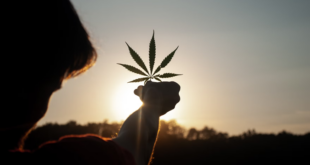
New federal policy will allow Native American tribes interested in cultivating and selling marijuana to do so, as long as they maintain “robust and effective regulatory systems,” said the U.S. attorney for Colorado, John Walsh.
Tribes will need to avoid certain enforcement triggers that also apply to state-regulated marijuana markets, including a prohibition on sales to minors and the diversion of marijuana trafficking to states where marijuana remains illegal under local law.
It is currently unclear how many tribes will take advantage of the new policy directive. Certain tribes are well-known for using their special legal status to host casinos and/or sell untaxed tobacco.
According to the Bureau of Indian Affairs there are 326 federally recognized Native American reservations. Many reservations are in states that don’t allow medical or recreational marijuana use, such as Oklahoma and the Dakotas. Many others are located near major East Coast cities.
“The tribes have the sovereign right to set the code on their reservations,” stated Timothy Purdon, U.S. attorney for North Dakota and chairman of the Attorney General’s Subcommittee on Native American Issues.
The Department of Justice said U.S. attorneys can review tribes’ marijuana policies on a case-by-case basis and that prosecutors retain the ability to enforce federal law.
Mason Tvert, a spokesman for the Marijuana Policy Project, said Native American tribal leaders “will have a tremendous opportunity to improve public health and safety, as well as benefit economically” by legalizing marijuana use.
Tvert also stated that “Regulating and taxing marijuana like alcohol would ensure the product is controlled, and it would bring significant revenue and new jobs to these communities…studies have consistently found above-average rates of alcohol abuse and related problems among Native American communities, so it would be incredibly beneficial to provide adults with a safer recreational alternative.”
 Ohio Marijuana | OH Marijuana Ohio Marijuana Information and News
Ohio Marijuana | OH Marijuana Ohio Marijuana Information and News






